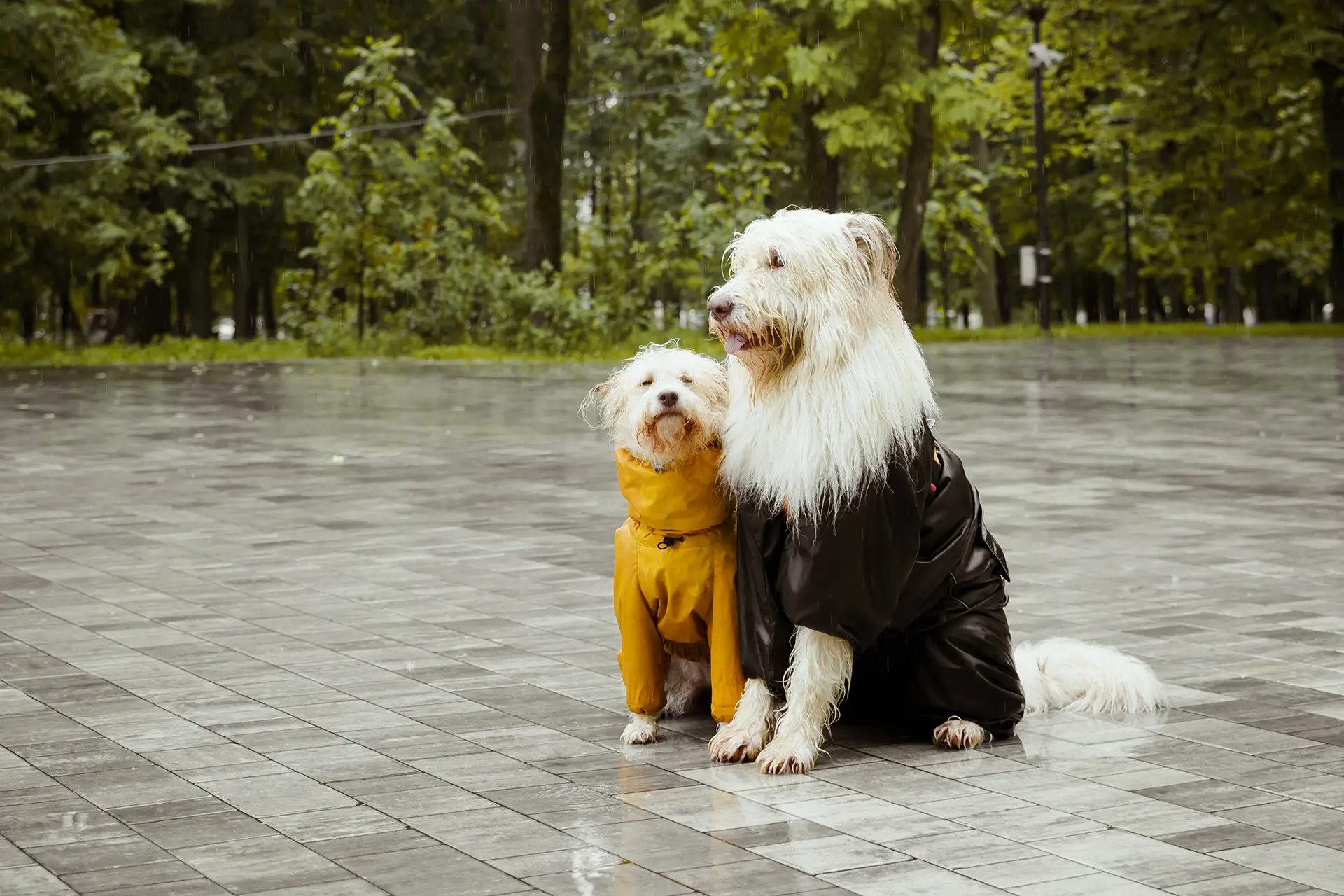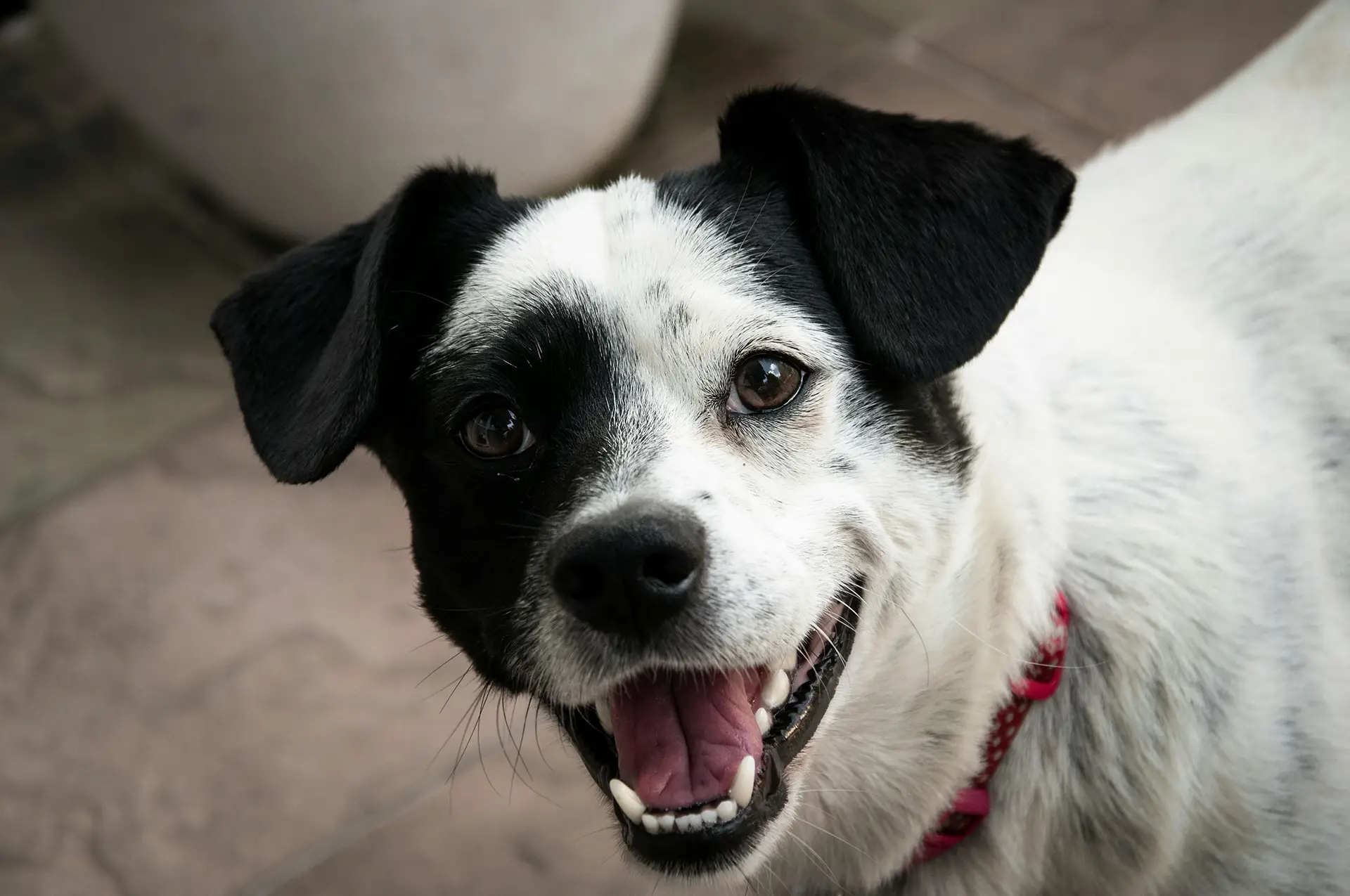Our canine companions come in all shapes and sizes. No matter whether you have a teeny tiny Chihuahua or a massive Saint Bernard, making sure that Fido is eating a good, nutritious diet is crucial to his health. Of course, you may need to make some adjustments to your canine pal’s menu as he ages. Read on for a Heath, TX vet’s advice on feeding a senior dog.
Choose the Right Senior Dog Food
Fido should be eating a pet food that is specially formulated for aging dogs. These may be lower in calories, which can help prevent weight gain. You may also find foods formulated to treat specific conditions, such as joint support formulas. Choosing something that contains the right amount of fat, protein, and nutrients is the most important thing here, of course. Consult your veterinarian for specific advice.
Stay On Top Of Your Dog’s Dental Health
Dental issues are very common in older dogs. Keeping Fido’s choppers clean by brushing and/or providing dental treats and chews is essential. Consult your vet if you find anything amiss.
Ask Your Heath, TX Veterinarian When To Change Foods
Did you know that there is no one point at which dogs are classified as seniors? That’s because the timeline is largely based on size. Generally, larger dogs age faster than smaller ones. For example, Great Danes may be considered seniors at just six, whereas a Chihuahua may not reach his golden years until they are ten or older.
However, there are some general rules of thumb to follow. A dog will be considered mature when they have reached half of their average life expectancy. When Fido surpasses 75% of that expected life span, they will be considered a senior. If a pup lives beyond their expected life span, they are then classified as geriatric.
Your veterinarian can advise you when to switch Fido to senior formula food. You’ll want to do this slowly, over several days, to avoid upsetting that furry belly.
Revisit Dinner Times/Schedules
There are many questions about how often senior dogs should be fed on a daily basis. Every dog is different, so you’ll want to speak with your Heath, TX veterinarian about that. Fido may benefit from being fed more frequently, but in smaller portions. It may be necessary to split those meals up into two to five portions a day.
Be Careful About Portion Sizes
Choosing the right amount of food for your dog can be a challenge. It is very important to look at the nutrition guidelines on the package before feeding your pet. You can also find charts on the websites of many pet food manufacturers. However, they often overestimate and vary from site to site. Purina, for instance, recommends two to two and a half cups a day for a dog between 26 and 50 pounds: Rover suggests 212 and 314.
As a general rule, we usually would recommend reducing a senior dog’s caloric intake by 20 to 30 percent. Once Fido becomes geriatric, he may need extra calories. Weather can also come into play here: a pup with thin fur may need a bit more food in winter. This of course may also vary from pup to pup. Your veterinarian should always be the final authority in this matter.
Incorporate Safe Fruits and Veggies
Dogs are classified as Carnivora, but they are not technically carnivores. Although meat should make up the majority of your pet’s food, Fido is actually an omnivore. Safe fruits and vegetables are good for your dog’s health. You can offer carrot sticks, dried sweet potato slices, apple slices, and even bananas. Just make sure anything is safe before you offer it. Some fruits and veggies, such as grapes, raisins, and avocados, are toxic to dogs.
Make Sure Fido Stays Hydrated
It is extremely important to keep your canine freind’s hydration up. If you have a large house and/or more than one floor, set out extra water bowls for your dog. Fido may also enjoy some sodium-free beef or chicken broth.
Consider Giving Your Dog Supplements
There is a wide range of vitamins and supplements specifically designed for older dogs. These include multivitamins, antioxidants, amino and fatty acids, and prebiotics and probiotics. Each has their own unique benefits. For example, adding Omega 3 and 6 to your furry companion’s diet can improve their skin and coat, and well as support their bones and joints. Additional options for joint health include glucosamine and vitamin K. Some dogs may also benefit from incorporating greens into their diet. For those with vision issues, a Vitamin A supplement can be helpful. However, it’s important to monitor the dosage carefully as excessive amounts can be harmful.
Be sure to consult your veterinarian before adding supplements. Also, keep a close eye out for any reactions.
Give Your Canine Buddy Healthy Treats
Fido will never outgrow his love of food. Just be careful: many of the treats you find in stores are high in calories, fat, and lack nutrition. Make your own treats, or choose healthy brands.
Make Sure Your Dog’s Food Is At The Right Temperature
It’s best to serve Fido’s food at room temperature. If you keep food in the fridge, take it out an hour before feeding. If you microwave anything to warm it up, test it first to make sure it’s not too hot.
Offer A Quiet Dining Area
This one depends somewhat on the size and setup of your home, and the number of pets you have. If Fido is an only dog, then you can put his bowls in the kitchen or wherever it’s most convenient. However, if you have a few pooches, mealtimes could get a bit frenzied. Fido needs to eat peacefully without his roommates jostling him or helping themselves to his food. You may need to feed your senior in a separate place.
Consider A Dinnerware Pupgrade
Fido may be more comfortable eating from a raised dish, so he doesn’t have to splay his feet or lower his neck so much. However, with larger dogs, these types of dishes can pose a concern for bloat.
Don’t Overfeed Your Senior Dog!
Fido may always be a puppy at heart. However, as your canine pal ages, he won’t be as zoomy as he once was, and he may be content with watching the squirrels in the yard rather than running after them. Therefore our canine friend will burn fewer calories than he used to. Obesity is a major problem in older dogs. The heavier Fido gets, the harder it will be for him to stay fit. The less fit he becomes, the heavier he will become.
Ask your Heath, TX vet for specific suggestions when it comes to portion sizes and snacks to help keep your dog slim. Also, nip any weight gain in the bud. it may be necessary to measure your pet’s food to make sure your pet is getting the exact amount of calories he needs.
In conclusion, your dog’s nutritional requirements will change as he gets older. You may have to switch to senior food, add supplements, and change meal schedules as your pet reaches his golden years. Consult your veterinarian for specific advice on how to feed a senior dog.
Get in touch with us, your local Heath, TX pet hospital, if you have any questions about your dog’s health or care. We’re here to help!






!Social Media Icons